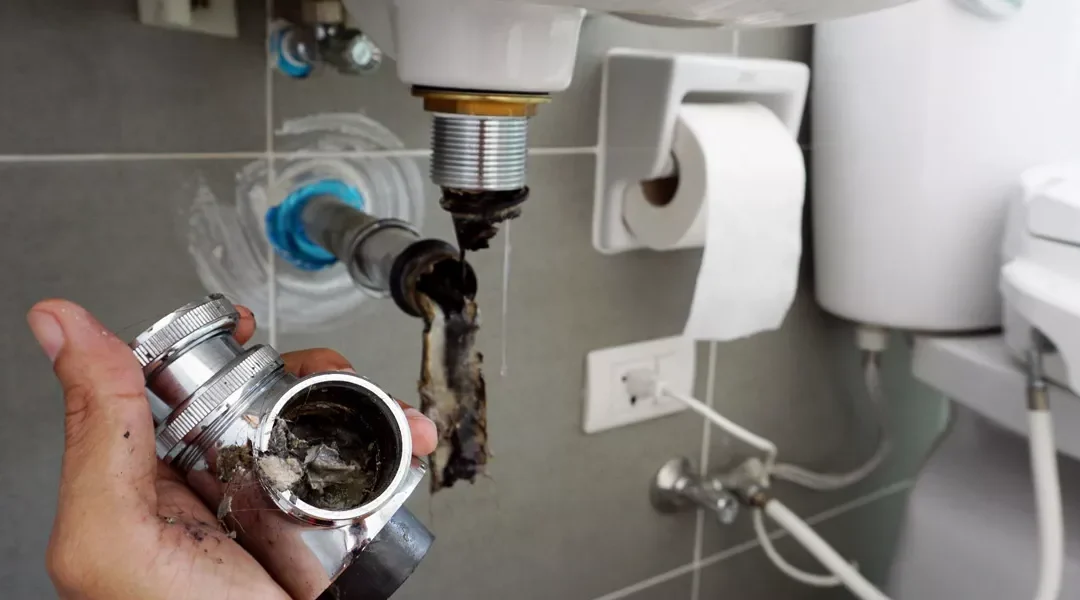Clogs are common, but at what point should you contact a plumber? Below we look at the most common types of drain clogs to be aware of and when you should call in the professionals.
#1 Toilet Clog
A clogged toilet is one of the most frequently clogged household drains. Toilets can become clogged from excessive toilet paper, waste or other materials. You’ll notice you have a clog when your toilet refuses to drain. While some clogs can easily be remedied with a plunger, others may be a sign of a much bigger problem — you could have blocked sewer lines or pipes. When this occurs, you’ll notice sewage backing up throughout your drains.
If a plunger isn’t working, contact a plumber immediately before your clog worsens. Trying to repair the clog yourself may end up causing damage to your toilet and plumbing system.
#2 Kitchen Drain Clog
Kitchen sink clogs are one of the most common plumbing problems and food is usually the culprit. Food wiped from plates and down the drain can become trapped in the plumbing under your sink. Sinks typically have what’s called a “P-Trap” or “J-Trap” that catches larger items and prevents them from entering the rest of your plumbing system. Over time, these food products can develop into clogs. Clogged drains are a major inconvenience and while you may want to reach for a drain cleaner, we don’t recommend them. In fact, we don’t recommend you use any type of harsh chemical, including bleach four clogs. These chemicals can damage your pipes, leading to warping and leaks. Additionally, drain cleaners are bad for the environment as well as for septic systems. Instead, if you have a serious clog — like there’s standing water in the sink or your garbage disposal is broken — you’ll want to contact your local plumber. Most plumbers are available 24/7 and will be able to quickly and effectively handle your plumbing problem.
#3 Shower Drain Clog
While shower and bathtub drains don’t experience as many clogs as sinks and toilets, they can be just as disruptive to your daily life. Your shower drains are subjected to face and body products, hair, soap, dirt, and hard water. Over time, all of these can contribute to shower drain clogs. To help avoid your shower from developing a clog, pick up stray hairs or consider adding a hair strainer in your drains. If you have frequent backups or older plumbing, a plumber can also provide you with routine shower and bathtub draining services.
Keep Your Drains Clog-Free
Below are some items you want to avoid putting down your drains as they can cause clogs.
- Grease, oils, and fats
- Eggshells
- Coffee grinds
- Paper towels
- Feminine hygiene products
- Diapers
- Potato Peels
- Flushable wipes
Professional Plumbing Services
Clogged drains may seem like a sudden occurrence, but many types of clogs develop over time. If you’re dealing with a household clog that requires expert service or you are experiencing frequent clogs, we recommend you contact your local plumber. Plumbers are equipped with the knowledge and tools needed to identify the cause of a clog and can fix it right away.


